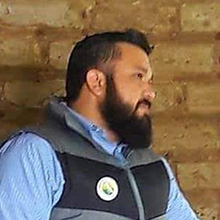JPAC Session 21-02: Sustainable management of transboundary waters: How to build successful collaborations
Online
October 29, 2021
11:00 am - 12:45 pm EST
Public
Air, land and water are inherently linked to the building blocks of life. Ensuring the quality and proper management of these resources is fundamental to protecting and improving community resiliency, the health of our citizens, natural ecosystems and species, and also to supporting sustainable economic prosperity.
Despite vast freshwater resources in North America, several environmental and sustainability issues affect the continent’s water security. An increase in the magnitude and frequency of droughts, deforestation, forest fires and floods; changes in our climate; the release of toxic chemicals to surface waters; the depletion of groundwater; the litter of plastics and leakage of nutrients and emerging pollutants into the water supply; and years of land-use changes—all these have direct impacts on water quantity and quality. As a result, the ability to meet the demand for a high-quality water supply for an increasing population and its availability to such key economic sectors as agriculture, industry, energy, and transportation, is at risk.
Freshwater resources may or may not correspond to political boundaries but regardless, activities on either side of the border can have a huge impact on communities relying on these resources. The sustainable management of transboundary waters therefore requires international cooperation at the local, regional, and national levels, especially in areas vulnerable to the impacts of climate change and where water is already scarce. Addressing water security at the continental scale will require collaborative decision-making to advance sustainable water management and ensuring access to clean water.
Agenda
Friday, 29 October 2021
Opening and welcoming remarks

Pedro Moctezuma
JPAC Chair
Presentations by invited experts
This segment will showcase North American success stories focusing on the collaborative process, including initial steps, leading to positive outcomes on multidimensional transboundary water issues.

Merrell-Ann Phare
Canadian Commissioner, International Joint Commission (IJC)
The IJC International Watersheds Initiative (IWI) is an approach to resolving transboundary water issues, grounded on the belief that local communities, given appropriate assistance, are best placed to achieve solutions.

Jennifer Pitt
Colorado River Program Director, National Audubon Society
The United States-Mexico 1944 Water Treaty – Minute 323 scales up ongoing environmental restoration projects and makes provisions for future water security in the Colorado River Basin. The agreements establish the rules by which water will be shared when there is a surplus and restrictions that will be adopted when there is drought, as well as protecting the ecology of the Colorado River Delta.

Juan Gonzalo Moreno Márquez
Member of the Cucapa Tribe and President of the Bienes Comunales de San Luis Río Colorado and co-founder of Contraloría Ciudadana del Agua de Mexicali
The Citizen Water Board of Mexicali (Contraloría Ciudadana del Agua de Mexicali) comprises citizens, communities, peasants, academia and Cucapá indigenous grassroots organizations contributing to transformative planning on basin and underground water issues and human rights advocacy to solve problems of water scarcity and inequity, the growing demand from diverse sectors, a low efficiency due to poor infrastructure, and management failures that promote investments requiring intensive use of water.
Moderated Discussion, Question and Answer Period with presenters, JPAC members and audience

Felicia Marcus
JPAC member
Closing remarks

Pedro Moctezuma
JPAC Chair
Click here to download the complete program of public events.
Contact
Marcela Orozco
Director, Advisory Groups and Public Participation
(514) 350-4305